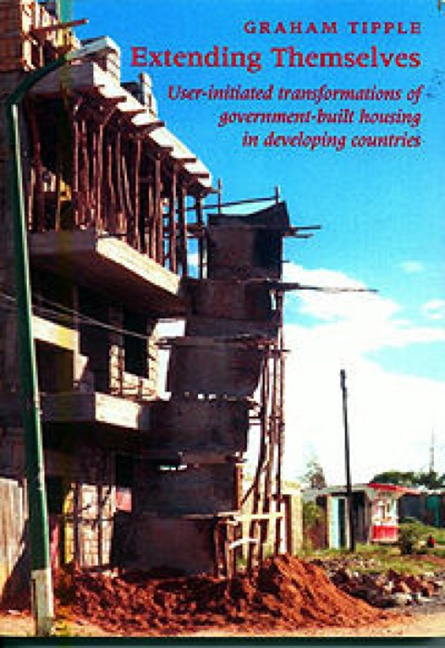 Extending Themselves
Extending Themselves Book contents
- Frontmatter
- Contents
- Acknowledgements
- 1 Introduction
- 2 The housing squeeze
- 3 More than just a dwelling
- 4 The financial element: transformation as an investment
- 5 Sustainability issues
- 6 The transformation process
- 7 The case for transformations
- 8 Policies for enabling transformations
- Appendix 1 Transformations in Bangladesh
- Appendix 2 Transformations in Egypt
- Appendix 3 Transformations in Ghana
- Appendix 4 Transformations in Zimbabwe
- Appendix 5 An assessment of the decision to transform
- References
- Index
5 - Sustainability issues
- Frontmatter
- Contents
- Acknowledgements
- 1 Introduction
- 2 The housing squeeze
- 3 More than just a dwelling
- 4 The financial element: transformation as an investment
- 5 Sustainability issues
- 6 The transformation process
- 7 The case for transformations
- 8 Policies for enabling transformations
- Appendix 1 Transformations in Bangladesh
- Appendix 2 Transformations in Egypt
- Appendix 3 Transformations in Ghana
- Appendix 4 Transformations in Zimbabwe
- Appendix 5 An assessment of the decision to transform
- References
- Index
Summary
Sustainable development
Following the UNCED ‘Earth Summit’ in Rio de Janeiro, the concept of sustainable development has been in the forefront of international thinking about human settlements. As set out in Agenda 21 (UNCED, 1992), sustainable development implies a new concept of economic growth – one that provides fairness and opportunity for all the world's people, not just the privileged few, without further destroying the world's natural resources and without compromising the carrying capacity of the globe; development which is economically, socially and environmentally sustainable.
Agenda 21 recognises that urbanisation offers unique opportunities for the supply of sustainable environmental infrastructure, and that the overall human settlement objective is to improve the social, economic and environmental quality of the living and working environment. In the fleshing out of Agenda 21 which has been exercising UN and other international agencies since 1992, there has been some focusing on the effects of its proposals on urban development (e.g. UNCHS/ILO, 1995) and some of the issues raised that are pertinent to our study are outlined below.
The achievement of sustainable development in the urban context is widened from just a governmental concern. People should be involved in the planning of improvements which affect their everyday lives, translating their concerns into positive action, with responsibilities to ensure such improvements are maintained and operated in an efficient manner. International agencies and governments have signed up to empowerment of ordinary people through their communities. Sustainable development demands decision-making to take place at as low a level as is commensurate with success (known as subsidiarity), from the household level at one end to inter-government level at the other.
In chapter 7 of Agenda 21 there is a clear call for a realignment of responsibility from the traditional services-oriented concerns of local authorities to enablement and promotional activities. They are urged to redirect their role away from controlling and towards enabling. Furthermore, both the planning process and local government need to be ‘sustainable’. Local authorities should be encouraged to improve their tax collection powers, especially with respect to land and property taxes. Services provided by local authorities should be charged for, to at least cover costs. Currently, planning is almost exclusively concerned with limitations and regulations; it is unnecessarily complicated; unrelated to the needs and programmes of public agencies and the private sector; and beyond the reach of those it was meant to serve.
- Type
- Chapter
- Information
- Extending ThemselvesUser Initiated Transformations of Government-built Housing in Developing Countries, pp. 80 - 102Publisher: Liverpool University PressPrint publication year: 2000


